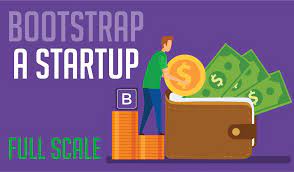Ways to Bootstrap Your Startup on a Tight Budget

Launching a startup without relying on outside funding is challenging but possible. With creativity and smart strategies, you can bootstrap your way to traction and growth. Here are tips for building your startup on a tight budget.
Take Advantage of Free Resources
Fortunately, today there are abundant free tools and resources for bootstrappers. Make the most of free options to save significantly on costs.
For office space, look into shared coworking options, incubators or free meeting spaces. Use free project collaboration tools like Trello and Slack.
Take advantage of free web hosting, invoicing, CRM and other software while starting out. Free resources allow you to launch and test ideas without depleting funds.
Barter Services with Other Startups
Trading services is a win-win for early-stage startups short on cash. Identify complementary startups you can barter services with.
Maybe you exchange programming resources for marketing help. Or offer office space in return for legal services. Bartering meets others’ needs while fulfilling yours.
Bartering works best with non-competing startups offering services you’ll actually utilize. Craft a simple agreement detailing exchanged services and values.
Use Affiliate Programs
Joining affiliate programs related to your startup’s offerings provides potential revenue early on. You earn commissions for promoting and driving sales for other companies.
Affiliate income gives you cash flow without having your own products yet. Look for affiliate programs in your niche that offer generous recurring commissions.
Focus on a few core programs so you can drive substantial traffic and conversions to maximize ongoing passive income.
Offer Services Before Products
Rather than rushing to develop products first, consider selling services to start. Offering consulting, design, development, installation or other services generates revenue faster.
Deliver services using your startup’s core expertise. This validates your capabilities, builds initial customers and brand awareness.
Transition to products down the road once you can invest more upfront in production. Offering services early on provides a valuable cash boost.
Presell to Validate and Fund
Before fully building your product or platform, validate demand by preselling. Create a basic landing page describing the offering and benefits. Collect preorders or deposits from interested users.
Presell direct or through a crowdfunding platform like Kickstarter. This tests whether customers will pay before you invest in full production. The deposits also provide funds to cover initial development costs.
Set a minimum threshold of presells to justify moving forward. Presales indicate real market demand and provide capital to bootstrap launch.
Stretch Personal Resources
When your own savings provide a chunk of early capital, make it go further. Be extremely frugal and disciplined with personal and company spending.
Avoid unnecessary expenses like lavish offices, equipment and software. Pay yourself minimally at first. Have co-founders also invest savings into the business.
Carefully track every penny going out. Trim any excess fat mercilessly. Scrutinize must-have versus nice-to-have costs. Conserve cash wherever possible.
Buy Used and Refurbished
Purchase used or refurbished equipment and furniture instead of buying everything brand new. Sites like Craigslist, eBay and NextWorth offer deals on secondhand gear.
For example, buy used laptops and monitors for the team. Find a refurbished printer and office furniture at a fraction of original price.
Prioritize functionality over appearances. Buy quality used items at steep discounts until revenue justifies new expenditures.
Leverage Credit Cards Cautiously
Business credit cards help spread startup costs over time. But be cautious – high balances and interest rates add up fast.
Use cards strictly for well-justified expenses and pay off balances monthly. Track spending closely and have a plan for paying off large purchases before they accumulate interest.
Rewards cards allow you to earn cashback, points and miles as you hit startup spending targets. Use judiciously and strategically.
Bootstrapping your startup takes discipline, persistence and creativity. But the payoff is maintaining control and flexibility. Follow these budget-friendly tactics to bootstrap your startup from the ground up.





